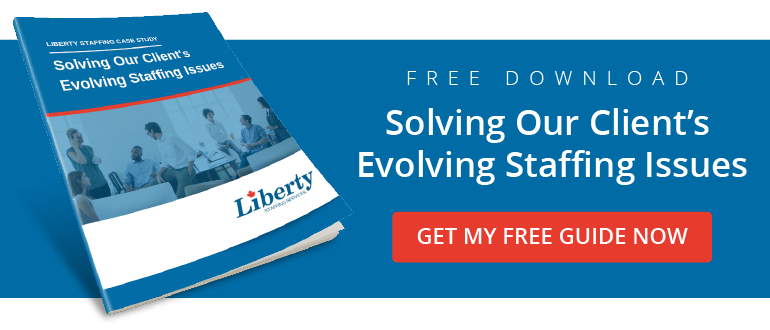 As an employer, you probably know all about the mistakes that job seekers make. After all, you see these errors over and over again as you sift through applications, searching for your next employee.
As an employer, you probably know all about the mistakes that job seekers make. After all, you see these errors over and over again as you sift through applications, searching for your next employee.
It can be little harder to see the hiring mistakes that your firm might be making, though. The next time you need to hire someone, step back and review your process to make sure you’re avoiding these five hiring mistakes.
1. You Don’t Hire for Fit
There are many reasons employers overlook cultural fit when they’re making a hire. Maybe you need to get someone into the role as soon as possible, or perhaps you’re hiring for a casual or temporary position. Maybe the job requires a lot of non-complex work, and it seems like “anyone could do it.”
Overlooking cultural fit is one of the most common hiring mistakes employers make. Cultural fit should be near the top of your list of what to look for in potential candidates. Job candidates who mesh well with your company’s culture will be more motivated and productive at work. Even if they’re employed with you for only a short time, you want employees who are going to bring their best and contribute to a positive work environment.
2. You Don’t Have a Structure
Hiring and onboarding a new employee is a time-consuming task. It can be difficult to find the right people, but many firms make more work for themselves by not using a structured hiring process.
When you have a structure in place, you can use metrics to be sure that every single candidate is assessed for the same criteria: skills, experience and even cultural fit with your firm. Your process should always be repeatable; if you can’t repeat the process every time, you may be committing one of the biggest hiring mistakes: hiring on instinct or feeling alone.
3. You Don’t Engage a Staffing Agency
Plenty of companies have reservations about using a staffing agency to help in their hiring. That attitude is often the result of myths about staffing agencies. The truth is that a staffing agency is a firm full of hiring experts with access to a deep pool of candidates.
A staffing agency can save your business time and money by helping you find the right candidates sooner. They can also help bring structure to your hiring process. While you still need to use your own internal metrics, a staffing agency is already assessing job seekers against your ideal candidate. Why make the hiring process more difficult than it needs to be? Let a staffing agency lend a hand.
4. You Don’t Know What You Want
It’s hard to hire an ideal candidate—or even a great candidate—if you don’t know what that candidate looks like. If you don’t know what you want, even a staffing agency will have a hard time finding the right candidates to fill the role.
Instead, write out a list of the job’s responsibilities and the corresponding skills and talents a potential employee should have. Don’t sugar coat the job either; being misleading about either the job requirements or what the ideal candidate looks like can lead to hiring mistakes.
5. You Ask the Wrong Questions
It’s not uncommon to hear people say that job seekers give the “wrong answers” during interviews—but are you asking the right questions in the first place? If your questions don’t cut to the heart of cultural fit or they focus too much on experience, you may not be getting the important answers, the ones that will truly tell you if this candidate is the right person for the job.

